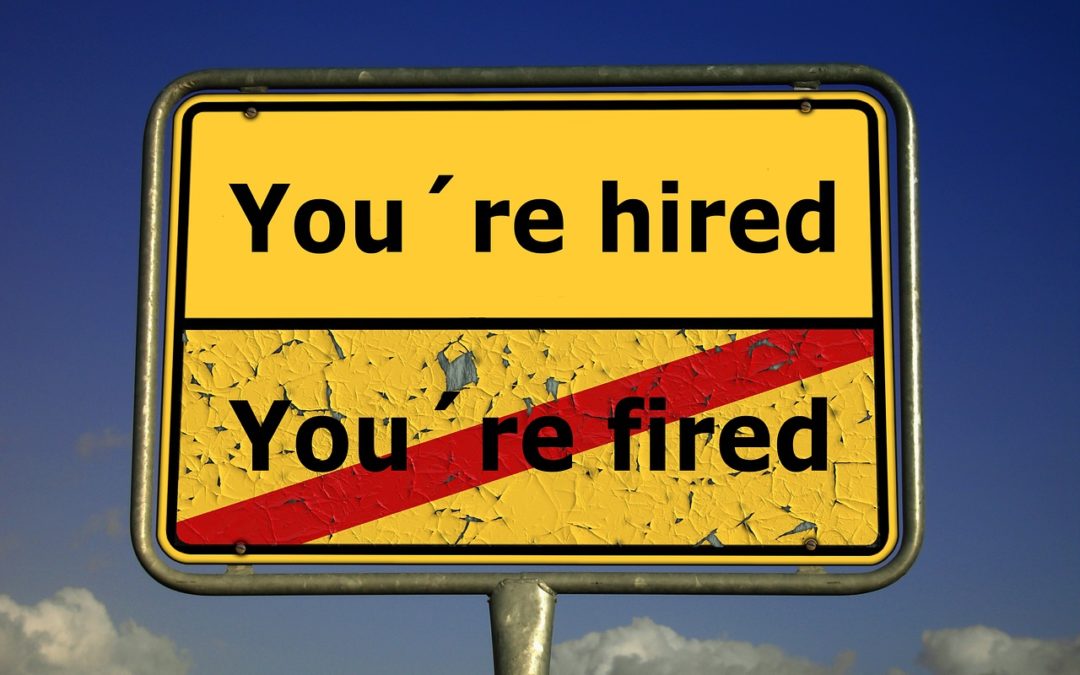Explaining Why You Were Fired
“So, tell me why you were fired.”
The question can echo through a room like a schoolyard challenge. Why were you fired? Weren’t you good enough? The questions roll in like a bus full of accusations. If you don’t answer the questions properly, the mistake you once committed will continue to cause you grief.
Rest assured, we aren’t here to judge. Our only concern is how you deal with it when you want to find a new job.
Steps to take after being fired
Step 1: Take a moment to reflect
Losing a job can be emotional at any time. Complicate that with the fact that you‘re the reason it happened and anyone can be forgiven for wallowing for awhile. You’ve had enough time however. It’s time to stand up and dust off your pants. You don’t have time to worry about what was when you need to be thinking about what will be.
Now that you’ve taken your time to scream it out, it’s time to get back to work. What you need to know is how you contributed to the firing. Don’t be worried about the minutiae, but the overarching reason.
- Did you take too much personal time?
- Were you not qualified?
- Was it a personal conflict with another employee?
Whatever the reason, understanding your roll will help you shield yourself from the emotional outburst. A new employer is looking for responsible team players. When you own your damage, then they know you can appreciate your shortfalls and address them.
Step 2: Keep it positive
Failure is the greatest teacher.
The positivity that comes out of a situation like this is twofold. On the one hand, you need to show that you learned from the experience so it won’t happen again. An employer wants to know that you can learn from your short comings. How else will you grow as a person?
On the other hand, leaving the dark emotional place is a healthy step forward. An employer wants positive people who won’t go around complaining about what happened before, or for that matter, running down old employers or team members.
Pro Tip: Resist the urge to talk trash about an old employer on social media. That negativity is now in the public domain and available for anyone to discover.
Step 3: Stick to the facts
Suddenly feeling compelled to give a long-winded explanation of what happened won’t win you any awards. A potential employer wants to know you have owned up to your mistakes, learned from them, and won’t repeat them. If you spend half the interview explaining why you lost a job, you won’t have time to show why you’re the best candidate.
When you give your explanation, look back to the real reasons why it happened. Of course, your positivity from the previous step will dictate that you turn those answers into something constructive. In these examples, you want to show your contrition and personal growth.
- I let personal issues affect my attendance. My situation is stable now and it won’t affect my work life moving forward.
- I was unable to perform at the level required for that position, but I am grateful for the learning experience.
- I had a personnel dispute with another employee. I took a long time to reflect and gain interpersonal skills to become a valuable member of any team.
Pro Tip: Once you have addressed the question, turn the conversation back to a positive and pertinent element as it pertains to the current job posting.
Practice makes perfect
Once you have an answer to the nagging questions about your dismissal, try answering the question in different ways. You want to be confident that you can relay the information without becoming emotional or you will destroy any rapport you’ve built with the interviewer.
Pro Tip: Be prepared to answer the question in different ways such as a request to explain gaps in employment.
Your practice may include responding to yourself in the mirror, to your friends and family, or to an employment coach. Get used to people asking the questions so you can be upright and forthcoming with your answer. You don’t want a hiring officer to feel like you’re leaving anything out, nor do you want to dwell on the negativity.
Pro Tip: Know the job you’re interviewing for and be prepared to show how what you learned will benefit them directly.
Bring it all home
At the end of the day, your interview is to show why you are the best candidate for a job. Don’t let a poor choice or negative event continue to affect your professional aspirations. It happened. What’s important to you and to any potential employer is that you own it and move on.
Pro Tip: At the end of any interview take the time to review what has been discussed, highlighting the positive elements.
Belleville Office
Unit 8, 161 Bridge Street W.
Belleville, ON K8P 1K2
Phone: 613-966-9069
Toll Free: 1-888-401-9636
Fax: 613-966-7357
Bancroft Office
Unit 3 124 Hastings St. N
Bancroft ON
Office: 613-332-3115 ext 202
Mobile Phone: 613-202-1584
Fax: 1-866-705-4520


